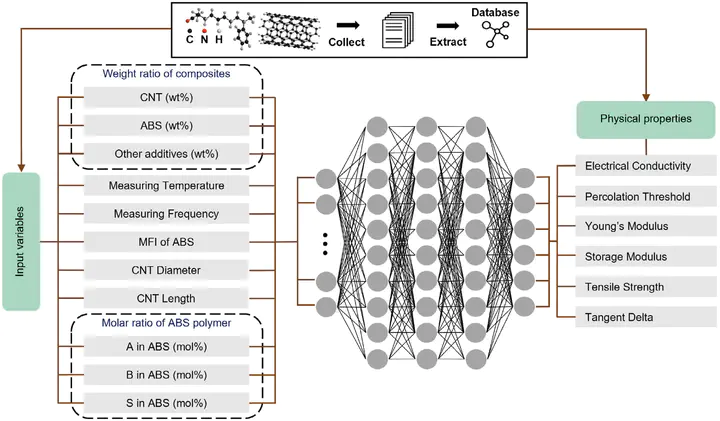[J25] Data-Driven Design of Electrically Conductive Nanocomposite Materials: A Case Study of Acrylonitrile–Butadiene–Styrene/Carbon Nanotube Binary Composites

Abstract
The field of polymer-based nanoscience has always been of significant interest in the search for polymer/carbon nanotube (CNT) nanocomposites with optimized material properties for new applications. Herein, it is demonstrated that data collected from the online literature can be used to develop an efficient deep learning model to design acrylonitrile–butadiene–styrene (ABS)/CNT binary composites. A dataset of 14 945 data points is constructed from 110 studies. The results demonstrate that compared with a vanilla deep regression model, the proposed model achieves a 26% lower average mean absolute error and an accuracy of 80.6%, which is 16.2% higher than the vanilla deep regression model in predicting the six electrical and mechanical properties of target ABS/CNT composites. In addition, a Monte Carlo simulation integrated with the developed deep neural network (DNN) model effectively screens input variables for users and thus appropriately guides them to manufacture a composite product with desired physical properties.